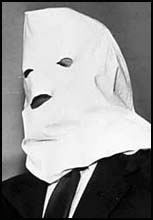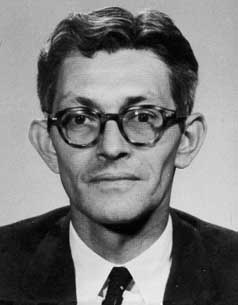Related Research Articles

The Cambridge Spy Ring was a ring of spies in the United Kingdom that passed information to the Soviet Union during World War II and was active from the 1930s until at least into the early 1950s. None of the known members were ever prosecuted for spying. The number and membership of the ring emerged slowly, from the 1950s onwards. The general public first became aware of the conspiracy after the sudden flight of Donald Maclean and Guy Burgess to the Soviet Union in 1951. Suspicion immediately fell on Harold "Kim" Philby, who eventually fled the country in 1963. Following Philby's flight, British intelligence obtained confessions from Anthony Blunt and then John Cairncross, who have come to be seen as the last two of a group of five. Their involvement was kept secret for many years: until 1979 for Blunt, and 1990 for Cairncross. The moniker Cambridge Four evolved to become the Cambridge Five after Cairncross was added.
Ian Adams was a Canadian author of fiction and non-fiction novels, television, and movies. Originally a journalist, he is now best known for his writing: his most successful novels are S – Portrait of a Spy and Agent of Influence.
Rick Salutin is a Canadian novelist, playwright, journalist, and critic and has been writing for more than forty years. Until October 1, 2010, he wrote a regular column in The Globe and Mail; on February 11, 2011, he began a weekly column in the Toronto Star.

Igor Sergeyevich Gouzenko was a cipher clerk for the Soviet embassy to Canada in Ottawa, Ontario. He defected on 5 September 1945, three days after the end of World War II, with 109 documents on the USSR's espionage activities in the West. This forced Canada's Prime Minister Mackenzie King to call a Royal Commission to investigate espionage in Canada.

The Canadian Security Intelligence Service is Canada's primary national intelligence service. It is responsible for collecting, analysing, reporting and disseminating intelligence on threats to Canada's national security, and conducting operations, covert and overt, within Canada and abroad. It also reports to and advises the Minister of Public Safety on national security issues and situations that threaten the security of the nation.

Anthony Frederick Blunt, styled Sir Anthony Blunt KCVO from 1956 to November 1979, was a leading British art historian who in 1964, after being offered immunity from prosecution, confessed to having been a spy for the Soviet Union.

The Spy Who Loved Me is the ninth novel in Ian Fleming's James Bond series, first published by Jonathan Cape on 16 April 1962. It is the shortest and most sexually explicit of Fleming's novels, as well as a clear departure from previous Bond novels in that the story is told in the first person by a young Canadian woman, Vivienne Michel. Bond himself does not appear until two-thirds of the way through the book. Fleming wrote a prologue to the novel giving Michel credit as a co-author.

Tinker Tailor Soldier Spy is a 1974 spy novel by British author John le Carré. It follows the endeavours of taciturn, aging spymaster George Smiley to uncover a Soviet mole in the British Secret Intelligence Service. The novel has received critical acclaim for its complex social commentary—and, at the time, relevance, following the defection of Kim Philby. The novel has been adapted into both a television series and a film, and remains a staple of the spy fiction genre.
Rupert William Simon Allason is a British former Conservative Party politician and professional author. He was the Member of Parliament (MP) for Torbay in Devon, from 1987 to 1997. He writes books and articles on the subject of espionage under the pen name Nigel West.

James Jesus Angleton was chief of counterintelligence for the Central Intelligence Agency (CIA) from 1954 to 1974. His official position within the organization was Associate Deputy Director of Operations for Counterintelligence (ADDOCI). Angleton was significantly involved in the US response to the purported KGB defectors Anatoliy Golitsyn and Yuri Nosenko. Angleton later became convinced the CIA harbored a high-ranking mole, and engaged in an intensive search. Whether this was a highly destructive witch hunt or appropriate caution vindicated by later moles remains a subject of intense historical debate.

The Honourable Schoolboy (1977) is a spy novel by John le Carré. George Smiley must reconstruct an intelligence service in order to run a successful offensive espionage operation to save the service from being dismantled by the government. In 1977, the book won the Gold Dagger award for the best crime novel of the year and the James Tait Black Memorial Prize. The Honourable Schoolboy is the second novel in the omnibus titled either Smiley Versus Karla or The Quest for Karla.
The Royal Commission of Inquiry into Certain Activities of the RCMP, better known as the McDonald Commission, was a Royal Commission called by the Canadian government of Pierre Trudeau to investigate the Royal Canadian Mounted Police after a number of illegal activities by the RCMP Security Service came to light in the 1970s. The Commission, Judge David Cargill McDonald, was established on 6 July 1977 and issued its final report in 1981.
John Benjamin Clark Watkins was a Canadian diplomat and scholar who served as Canadian ambassador to the Soviet Union from 1954 to 1956. Describing Watkins as "sophisticated, erudite and fluent in Russian", Michael Dobbs of The Washington Post wrote that he was the "perfect ambassador" to Moscow. He is credited with organizing a historic meeting between Soviet Premier Nikita Khrushchev and Canadian External Affairs Minister Lester B. Pearson.

Mubin Shaikh is a former security intelligence and counter terrorism operative, currently a Professor of Public Safety at Seneca College and also Counter Extremism Specialist for the U.S.-based NGO, Parents for Peace.
Founded in 2001, Project O Canada was a Toronto-based anti-terrorism investigation by the Royal Canadian Mounted Police. Created in response to the September 11, 2001 attacks, subdivisions of the project named A-O Canada and C-O Canada were based in Ottawa and Montreal, RCMP Divisions A and C respectively. By December 2001, the RCMP was shifting its focus from gathering intelligence, to seeking information "in a manner suitable for court purposes".
An ethnic Tamil, Kumaravelu Vignarajah was arrested on eight charges while living in Canada, accused of infiltrating the Royal Canadian Mounted Police while fundraising for the Tamil Tigers. It was discovered he was passing Sri Lankan military secrets to the Canadians, and classified information from both Canada and Sri Lanka to the militant group.
Leslie James Bennett was a British/Canadian citizen who spent most of his working life as a counter-intelligence official, first for Britain's GCHQ, and later for the Royal Canadian Mounted Police (RCMP) Security Service. He took an early retirement and moved to Australia.
Sergeant Gilles G. Brunet was a career officer in Canada's Royal Canadian Mounted Police. In 1972 American suspicions had triggered one of Brunet's colleagues, Leslie James Bennett, to lose his security clearance, leading to his dismissal. A year after Brunet's death, a Soviet defector named Vitaly Sergeyevich Yurchenko would clear Bennett, and assert that Brunet was the mole.
Josaphat Brunet was a senior police officer in Canada. In 1956 he was the founding director of the RCMP Security Service. In 1958 he was promoted to Deputy Commissioner of the Royal Canadian Mounted Police. Following his retirement from the RCMP he became, briefly, the director of Security for the National Bank of Canada. Later in 1960 he was appointed Director General of the Sûreté du Québec, a post he held for five years.
References
- 1 2 3 4 "Editor urged Mountie to sue spy novelist". Windsor Star. 1980-12-17. p. 26. Retrieved 2013-12-01.
Toronto Sun editor Peter Worthington was told he had ground for suing novelist Ian Adams in 1977 but instead suggested to former RCMP counter-intelligence chief Leslie James Bennett that he sue Adams for libel, it has been disclosed.
- 1 2 Paul Hellyer (1977-11-27). "Characters are thinly veiled in our very own spy thriller". Ottawa Citizen. p. 12. Retrieved 2013-12-01.
But Kling is a minor figure in the book, which is a fascinating, mischievous and sometimes dangerous mixture of fact, fiction and innuendo. "Au" as author Adams describes himself, uses poetic license and the practice of putting words into other people's mouths as subtle vehicles to discredit the RCMP and especially the CIA.
- ↑ Brian Busby (2010). Character Parts: Who's Really Who in CanLit. Random House. ISBN 9780307368584 . Retrieved 2013-12-01.
The lawsuit was eventually settled out of court in December 1980. Bennett received $30,000, little more than enough to cover his legal costs, in exchange for dropping the suit. He also signed a release not to launch further actions against the book and any theatrical or film adaptations.
- ↑ "Adams get support". The Sherbrooke Forum. 1980-09-22. p. 16. Retrieved 2013-12-01.
In court, Adams has been ordered to reveal his sources for the book, while Bennett was allowed to hide behind the Official Secrets Act to avoid talking.